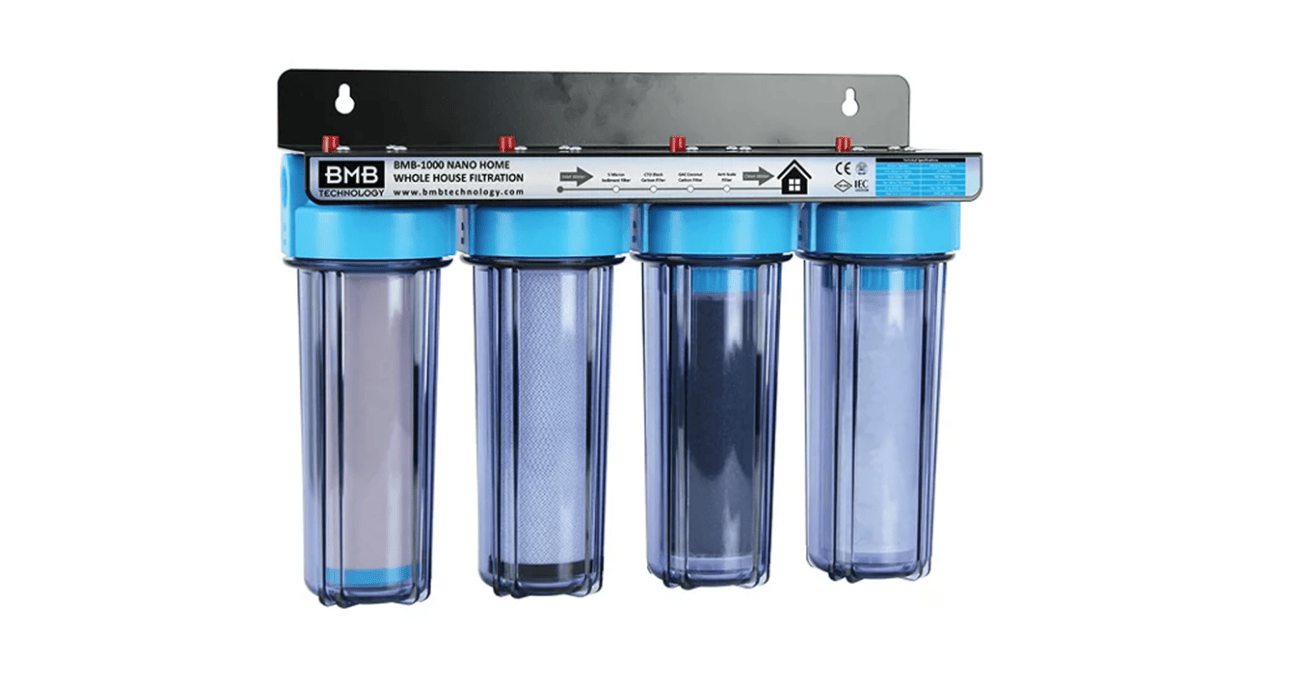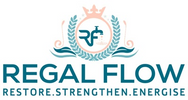
Hard Water: Causes, Effects & Best Filtration Solutions
Taps furring up? Kettle full of crust? You’ve got hard water, and it’s not just a nuisance — it’s hijacking your plumbing and drying out your skin. In this guide to Understanding Hard Water: Causes, Effects & Best Filtration Solutions, we explain the problem and how to fix it for good.
What is Hard Water?
Hard water contains high levels of dissolved minerals, mainly calcium and magnesium. These minerals enter the water supply as it flows through rocks and soil, picking up small particles along the way. Some areas have naturally harder water than others—if you’ve ever noticed white, chalky residue on your taps, you’re probably in one of them! The hardness of water varies, and knowing your level can help you decide on the best solution.
Minerals Responsible for Hardness (Calcium and Magnesium)
- Calcium: The culprit behind limescale build-up in kettles, pipes, and boilers, reducing their efficiency.
- Magnesium: Plays a major role in soap scum formation, making it harder to lather soap or shampoo properly.
Measuring Water Hardness Levels
Water hardness is measured in grains per gallon (gpg) or milligrams per litre (mg/L). Here’s a simple breakdown:
- Soft Water: 0–60 mg/L (0–3.5 gpg)
- Moderately Hard: 61–120 mg/L (3.5–7 gpg)
- Hard Water: 121–180 mg/L (7–10.5 gpg)
- Very Hard Water: 180+ mg/L (10.5+ gpg)
Want to know your water’s hardness? Grab a testing kit or check with your local water supplier.
Impacts of Hard Water
Hard water doesn’t just sit quietly in your pipes—it causes scale build-up, dry skin, and higher energy bills. Let’s break down how it affects daily life.
Appliance Damage Due to Scale Build-up
Ever wondered why your kettle takes ages to boil? That’s limescale slowing things down.
- Water heaters and boilers lose efficiency as scale builds up inside.
- Dishwashers and washing machines need extra detergent because hard water makes soap less effective.
- Pipes can clog, leading to expensive plumbing repairs.
Effects on Skin and Hair
- Dry, irritated skin: Hard water leaves a residue that strips away moisture.
- Dull, brittle hair: Shampoo doesn’t lather well, and minerals leave a film on your hair.
- Soap scum: A sticky residue that clings to skin, making it feel less clean.
Filtration Solutions for Hard Water
The good news? Hard water can be treated! Several filtration methods remove or neutralise minerals, making water softer and easier to use.
Effective Filtration Technologies
Reverse Osmosis: Comprehensive Mineral Removal
Reverse osmosis (RO) is one of the most effective ways to remove minerals. It uses a fine membrane to filter out calcium, magnesium, and other impurities, leaving you with soft, clean water. However, RO systems require regular filter changes and can be slower than other methods.
Ion Exchange Water Softeners
These systems swap calcium and magnesium for sodium or potassium, softening the water. They’re highly effective but require regular salt top-ups and maintenance.
Limitations of Carbon Filtration for Hardness
Carbon filters are great for improving taste and odour, but they don’t remove hardness minerals. They work best alongside other softening methods.
Choosing the Right Filtration System
Assessing Water Hardness Levels
Before choosing a system, test your water’s hardness. If it’s very hard, ion exchange or RO systems are your best bet.
Maintenance and Filter Replacement Needs
Different systems require different upkeep:
- RO filters: Change every 6–12 months.
- Ion exchange softeners: Top up salt regularly and clean the resin bed.
- Carbon filters: Replace every 3–6 months (but won’t soften hard water).
Countertop Dispensers for Hard Water
Countertop water dispensers offer a space-saving way to filter hard water without major installation.
Reverse Osmosis Countertop Dispensers
Advantages and Space Requirements
- Removes minerals completely—ideal for hard water areas.
- Compact and portable, requiring minimal space.
- No plumbing needed, making setup quick and easy.
Installation Considerations
RO countertop dispensers need a steady water supply and regular filter changes. Some models also require extra space for water storage.
Water Softening Countertop Filters
Performance and Maintenance Needs
- Uses ion exchange or resin-based softening to reduce hardness.
- Needs frequent regeneration to stay effective.
Frequency of Filter Replacement
- Softening filters: Change every 3–6 months, depending on use.
- Pre-filters (if included): Replace every 6–12 months.
Managing Scale and Appliance Longevity
Scale Build-up Prevention
- Use softened water for kettles, coffee makers, and irons.
- Descaling agents help break down limescale deposits.
Regular Cleaning and Descaling Procedures
- Vinegar or citric acid solutions work well for natural descaling.
- Routine cleaning prevents build-up and keeps appliances working efficiently.
Maintenance and Alternatives for Hard Water
Keeping your filtration system in top shape ensures long-lasting performance.
Regular Filter Maintenance
Importance of Timely Filter Changes
- Clogged filters reduce effectiveness and may let minerals pass through.
- Old filters can become a breeding ground for bacteria.
Cleaning and Maintenance Best Practices
- Flush filters regularly to prevent clogs.
- Stick to the manufacturer’s guidelines for replacements.
Alternative Solutions
Whole-House Water Softening Solutions
A whole-house softener treats all incoming water, preventing limescale build-up in pipes and appliances. It’s the best option for areas with very hard water.
Bottled Water and Other Options
Not ready for a filtration system? Bottled water offers a quick fix, but costs can add up over time. Distilled water is another alternative, free from minerals but lacking in taste.
Final Thoughts
Hard water can be a real nuisance, but you don’t have to live with it. Whether you choose reverse osmosis, ion exchange, or a countertop dispenser, a good filtration system makes a huge difference. Want a hassle-free way to improve your water quality? Consider a Countertop RO System or a Whole-House Water Softener—your appliances, skin, and hair will thank you!
🎯 Let’s make it easy. Get in touch and we’ll help you find a solution that fits your home, budget, and water needs. Telephone 0121 630 1130 or click the green WhatsApp icon
More Countertop Water Dispenser info we think you'll love
Which is cheaper to run kettle or water dispenser?
Is it cheaper to buy water bottles or water dispenser?
Countertop Water Dispensers vs. Bottled Water
The most cost-efficient way to buy water?
How can I reduce my water bills?
Is it worth it to buy bottled water?
Do water dispensers use a lot of electricity?


Leave a comment